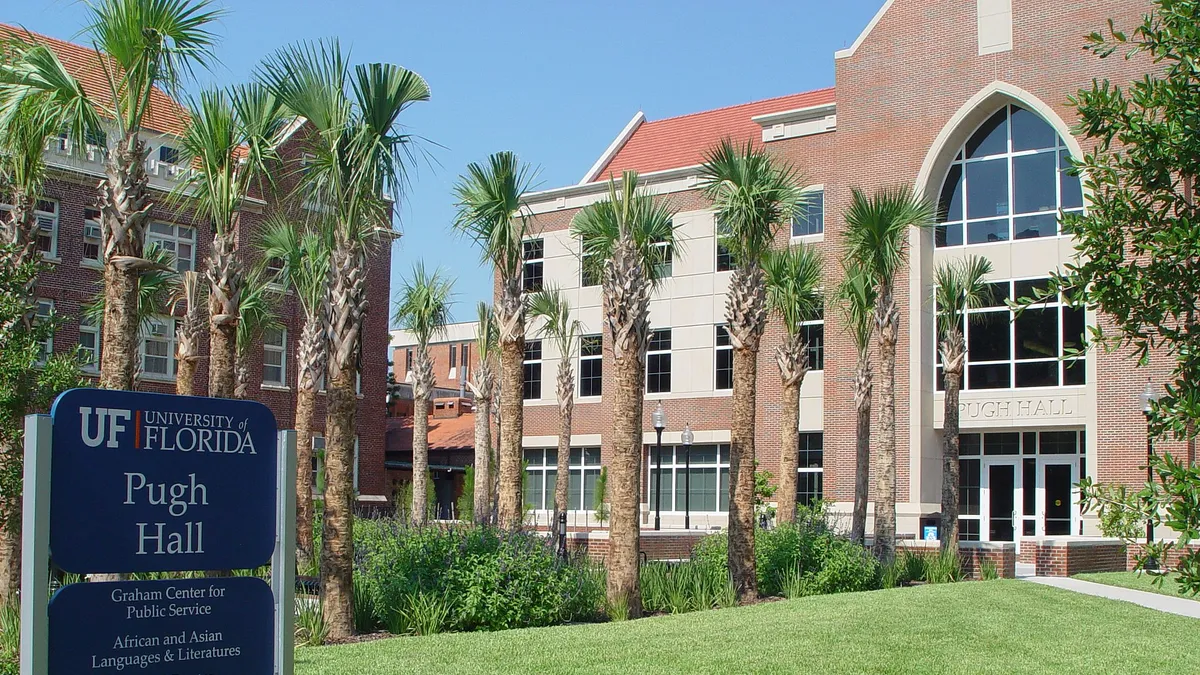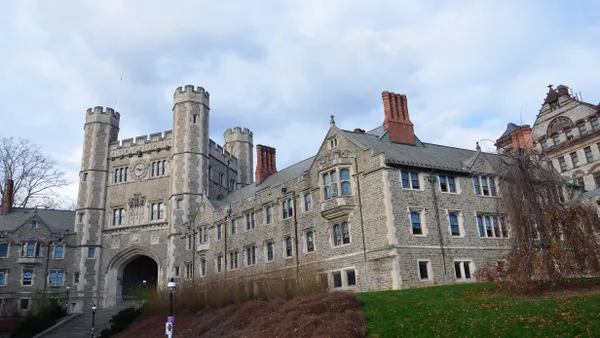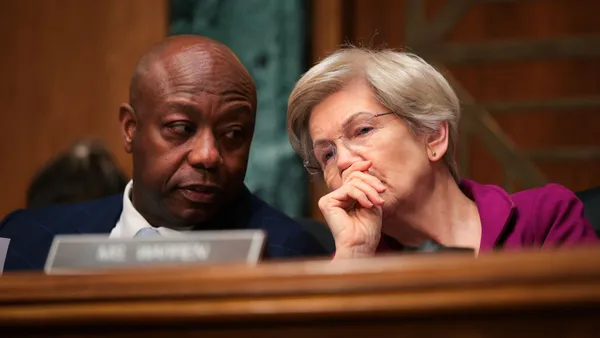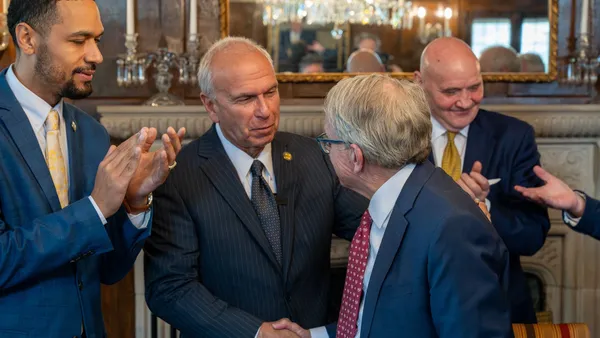UPDATE: Nov. 16, 2021: Three additional professors at the University of Florida have joined the lawsuit alleging officials at the institution stifled faculty free speech rights.
Three professors originally sued earlier this month after the university blocked them from participating in a lawsuit against the state's new restrictive voting law. The new plaintiffs are Jeffrey Goldhagen, a pediatrics professor, and Teresa Reid and Kenneth Nunn, both law professors.
Reid and Nunn were added to the lawsuit because they were allegedly barred from signing a friend-of-the-court brief with their institutional affiliations in a case over voting rights for those with felony convictions. Goldhagen, the pediatrics professor, joined the lawsuit after allegedly being prevented from taking part in a case about mask mandates in public schools.
Attorneys for the professors said in a statement that it is unsurprising three more professors signed onto the lawsuit, "given the University of Florida’s pervasive and deferential adherence to the State Government's political whims."
They said they would fight in court until the university's conflict-of-interest policy is abandoned. U of Florida officials cited the conflict-of-interest rule when they denied professors the chance to testify in the voting rights lawsuit.
Dive Brief:
- The trio of University of Florida professors who had been banned from testifying in a lawsuit against the state sued their institution on Friday, alleging First Amendment rights of faculty were being violated.
- The three professors filed the lawsuit despite the university reversing its decision and allowing them to participate in a complaint against the state's new restrictive voting law. Officials, in walking back the decision, at first said the academics could not be paid for their work in the case. But on Friday they announced the professors could be compensated as long as they were on their own time and not using institutional resources.
- U of Florida has convened a task force to review policies governing potential conflicts of interest. Other professors have also stepped forward saying the university has blocked them from involvement in other lawsuits.
Dive Insight:
U of Florida's initial move to limit the professors' participation in the case prompted a national firestorm over faculty free speech rights.
The scandal fits into a larger debate about state influence in decisions traditionally left to colleges, including over tenure rights.
The three faculty members at U of Florida — Sharon Austin, Michael McDonald and Daniel Smith — had been barred from providing expert testimony in a complaint challenging a new state law that curtails voting rights. U of Florida officials considered the professors' involvement "adverse to the university's interests." The decision set off speculation officials were bowing to pressure from the administration of Gov. Ron DeSantis, a Republican.
The university's actions drew condemnations from faculty groups and civil liberties organizations. They also led to revelations the university had prevented other professors from participating in other cases. The university stopped at least five other faculty members from taking part in lawsuits, according to The Miami Herald.
The Foundation for Individual Rights in Education, a civil liberties watchdog, claimed victory when the U of Florida announced Friday a full reversal of its initial ban. The organization last week sent a letter to the university outlining its concerns.
Neither an outright refusal nor restricting the faculty from being paid for their work is constitutional, FIRE said in a statement.
Aaron Terr, a program officer for FIRE's Individual Rights Defense Program, called the university's initial denial "indefensible."
"As we explained to UF, public university faculty have a First Amendment right to speak on matters of public concern, and that includes providing expert testimony — paid or unpaid — in court," Terr said in a statement. "As scholars, they also possess the academic freedom to share their research and knowledge for the common good."
But the university's concession did not stop the faculty members from suing. They argue in court filings that the policy that had dictated whether they could participate in the first place is unlawful and remains in effect.
The academics are asking the court to stop the university from enforcing any rule restricting faculty members' activities outside the classroom, even if the institution deems them unaligned with its interests.
"Discrimination and prior restraint on the basis of viewpoint or content are presumptively unconstitutional," the lawsuit states. "Thus the University's restrictions must be struck down unless they are narrowly tailored to serve a compelling interest of the State."
A university spokesperson declined to comment on the lawsuit Monday.















